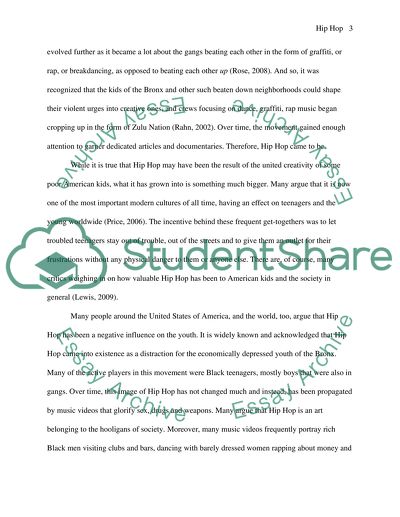Cite this document
(Is Hip Hop a Culture Essay Example | Topics and Well Written Essays - 1500 words, n.d.)
Is Hip Hop a Culture Essay Example | Topics and Well Written Essays - 1500 words. https://studentshare.org/social-science/1496612-is-hip-hop-a-culture
Is Hip Hop a Culture Essay Example | Topics and Well Written Essays - 1500 words. https://studentshare.org/social-science/1496612-is-hip-hop-a-culture
(Is Hip Hop a Culture Essay Example | Topics and Well Written Essays - 1500 Words)
Is Hip Hop a Culture Essay Example | Topics and Well Written Essays - 1500 Words. https://studentshare.org/social-science/1496612-is-hip-hop-a-culture.
Is Hip Hop a Culture Essay Example | Topics and Well Written Essays - 1500 Words. https://studentshare.org/social-science/1496612-is-hip-hop-a-culture.
“Is Hip Hop a Culture Essay Example | Topics and Well Written Essays - 1500 Words”. https://studentshare.org/social-science/1496612-is-hip-hop-a-culture.


